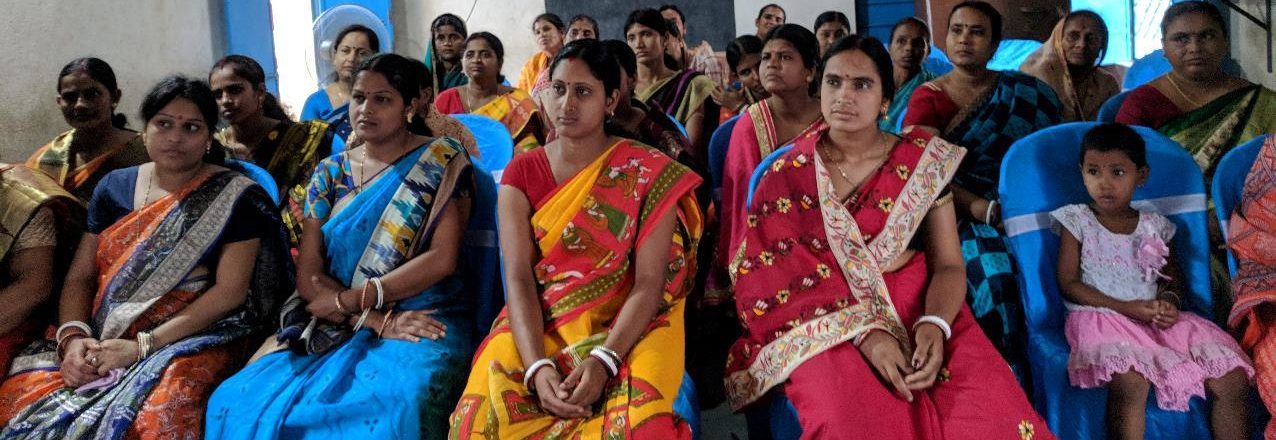Introduction and Background
The Integrated Land and Resource Governance (ILRG) task order under the Strengthening Tenure and Resource Rights II (STARR II) Indefinite Delivery/Indefinite Quantity (IDIQ) contract provides support to the United States Agency for International Development’s (USAID) Land and Urban Office in the Bureau for Economic Growth, Education, and Environment (E3/LU). ILRG develops and implements targeted interventions in select USAID countries, providing technical assistance to improve land and resource governance, strengthen property rights, and build resilient livelihoods as the foundation for stability, resilience, and strong economic growth. The task order has four primary objectives:
- To increase inclusive economic growth, resilience, and food security;
- To provide a foundation for sustainable natural resource management and biodiversity conservation;
- To promote good governance, conflict mitigation, and disaster mitigation and relief; and,
- To empower women and other vulnerable populations.
To achieve this, the task order works through four inter-related components with diverse stakeholders:
- Component 1: Support the development of inclusive land and property rights laws and policies;
- Component 2: Assist law and policy implementation, including clarifying, documenting, registering, and administering rights to land and resources;
- Component 3: Support the capacity of local institutions to administer and secure equitable land and resource governance; and
- Component 4: Facilitate responsible land-based investment that creates optimized outcomes for communities, investors, and the public.
The ILRG contract has two mechanisms for providing support on land and natural resource governance: 1) term activities; and 2) completion activities. Under the term portion of the contract, the project implements technical assistance in Mozambique and Zambia. Work in Mozambique initially focuses on clarifying, documenting, registering, and administering rights to land and resources through collaboration on responsible land-based investment, while work in Zambia includes support to land policy, customary land administration and service delivery, and natural resource governance and tenure around protected areas. Under the completion portion of the contract, USAID missions, bureaus, and offices can support additional field scopes of work in locations to be determined. Initial activities identified under this portion of the contract include: 1) support around USAID’s draft Policy on Indigenous Peoples’ Issues; 2) support to deforestation-free cocoa in Ghana through the creation of a sustainably financed farm rehabilitation and land tenure strengthening model; and 3) collaboration with PepsiCo on gender and women’s empowerment within the potato value chain in West Bengal, India. Additional discussions are underway regarding potential completion activities in Liberia, Burma, and Indonesia. During this quarter an opportunity to work with the African Land Policy Center was dropped following consultation.
ILRG was awarded July 27, 2018. The task order has a three-year base period (through July 2021) and two one-year option periods.
Executive Summary
This report covers months ten to twelve of the ILRG program and reflects the start of field activities and trainings with new grantees in term countries and the launching of activities in completion countries.
ILRG Zambia and Mozambique hosted visits by USAID/Washington, in addition to technical support around customary land administration processes in Zambia. Community land documentation processes and association establishment started with field partners in Mozambique and Zambia and USAID/Washington’s visits to both countries helped to identify priorities for year two activities. In Zambia, specifically, ILRG deepened partnerships with national and district level government across all potential areas of activities, promoting leadership roles of ILRG’s grantees in integrated development plan processes as well in community-based wildlife and forest management activities. ILRG re-engaged closely with the Ministry of Lands and Natural Resources around the draft Land Policy.
With respect to completion activities, ILRG began to draft sector-specific guidance documents associated with USAID’s draft Policy on Indigenous Peoples’ Issues. ILRG’s Ghana implementation plan was approved to work with private sector partners, the Hershey Company (hereafter Hershey) and Ecom Agroindustrial Corp. (ECOM), on cocoa farm rehabilitation, land tenure documentation, and land use planning with the goal of reducing emissions from deforestation, as well as achieving a private sector-facilitated scaling of farm rehabilitation and land tenure documentation. A participatory rural appraisal was carried out during this time, with the participation of USAID, and broader opportunities and risks were identified.
Tetra Tech and Landesa, under subcontracts with PepsiCo, led an implementation plan development workshop during the quarter on land rights, gender, and agriculture in the potato value chain in West Bengal, India, resulting in the completion of a rapid start scope of work and draft implementation plan for activities to be carried out under ILRG. Staff recruitment and initial activities began during the quarter. Scopes of work were developed for completion activities in Liberia and on finalizing the state of the evidence associated with the E3/LU research agenda. A scope of work to collaborate with the African Land Policy Center and the USAID Bureau for Food Security was considered but ultimately was not pursued under ILRG. ILRG awaits further guidance on potential activities in Indonesia and Burma. The USAID Contracting Officer’s Representative (COR) confirmed that the Mexico term activity will not be pursued, though ILRG awaits further confirmation from the Contracting Officer.


